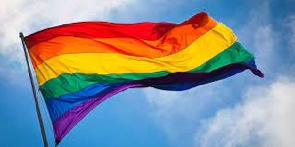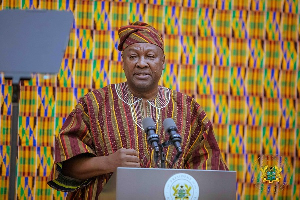The recent anti-LGBTQ legislation in Ghana has ignited a passionate dialogue, one that begs for a decisive stance on the rights of lesbians, gays, and those who identify as queer. Interestingly, this group has not violated any known state laws or infringed upon individual rights.
Still, their unique desires have found themselves in the state's legislative crosshairs, contemplating legal actions that could criminalize their deeply personal preferences. It's a clear indication of an emerging moral panic, based on fears that their desires somehow transgress the natural order and societal norms. The notion that recognizing their sexual orientation could trigger an era of extreme moral degeneration is both unfounded and divisive.
African culture has a rich history of acknowledging varied social behaviours and lifestyles. The term “Kojo Basia” in Ghana, for instance, is used to recognize effeminate individuals — men who exhibit characteristics traditionally associated with women. Despite their divergence from normative heterosexual behaviours, these individuals have been integrated into society, not isolated or ostracized.
Their existence and acceptance within society attest to the spectrum of sexual orientations beyond the binary. Over time, societal restrictions may have inadvertently denied them the opportunity to find female partners or have children, the potential fallout of superficial judgments and an unfortunate oversight of their unique needs. This demonstrates how nature, in its infinite wisdom, embraces diversity even when we may find it challenging.
As this issue takes centre stage, it is crucial that we develop a more nuanced understanding of the experiences of individuals who identify differently. It's erroneous and simplistic to label gays, lesbians, and queers as foreign, socially discordant elements. The reality is that such identities existed within African societies long before colonialism and globalization began influencing cultures. The question that requires immediate attention revolves around whether these individuals deserve to enjoy their inherent sexual orientation without fear or prejudice.
Human relationships, including cohabitation and marriage, extend far beyond the physical aspects of sex. They encompass mutual understanding, respect, and the freedom to fulfil each other's needs. If two consenting adults find these elements within each other, they should be accorded the right to exercise their personal choices and live their lives in happiness.
Criminalizing such choices is not only an infringement on individual liberties but also a blatant contradiction of international human rights laws, many of which Ghana has ratified. Our approach to this issue should be characterized by empathy, understanding, and acceptance rather than fear, prejudice, and criminalization.
Opinions of Sunday, 30 July 2023
Columnist: Isaac Ofori















